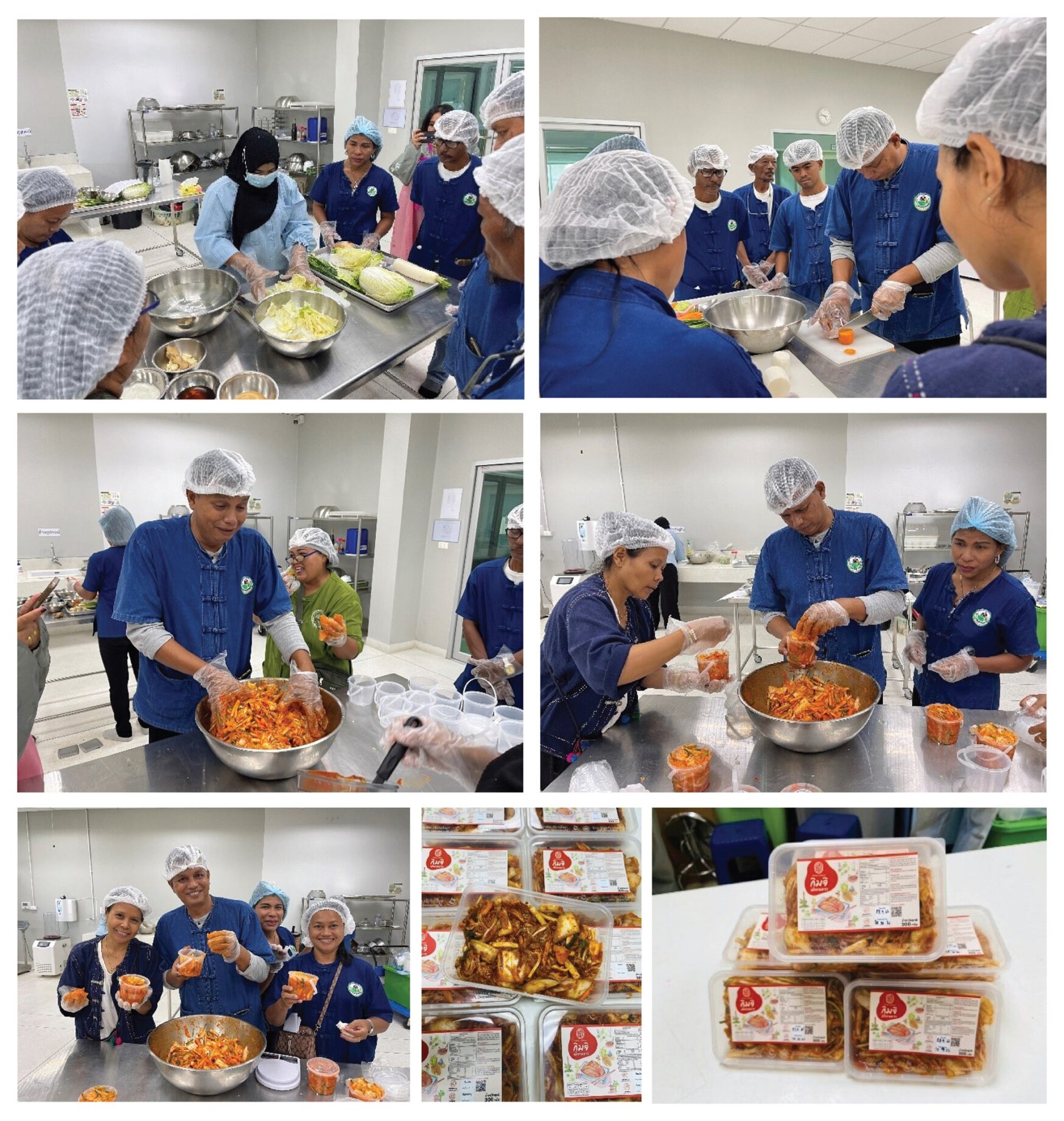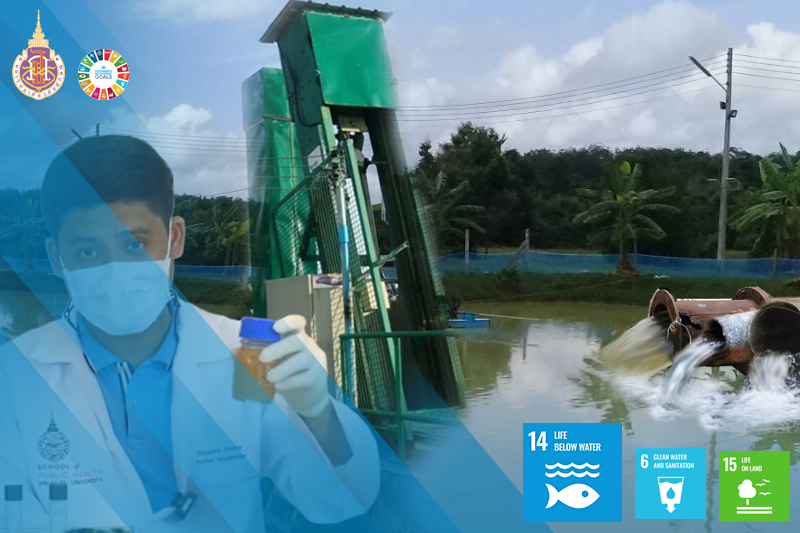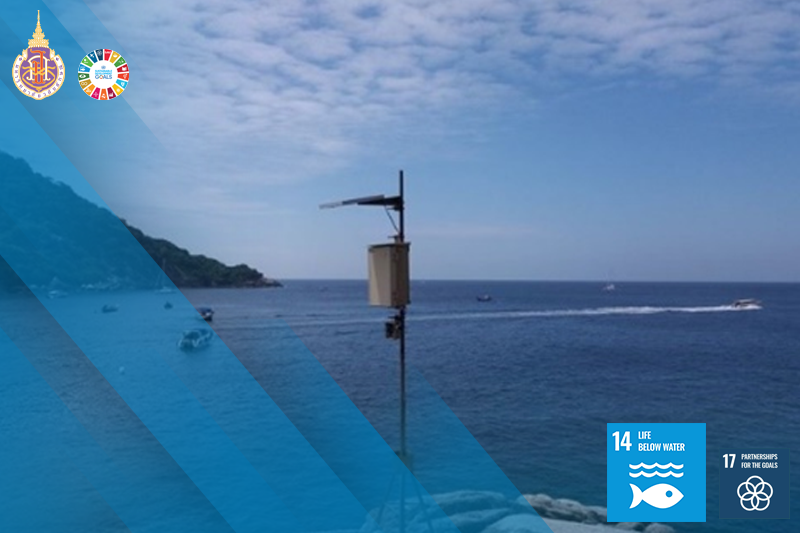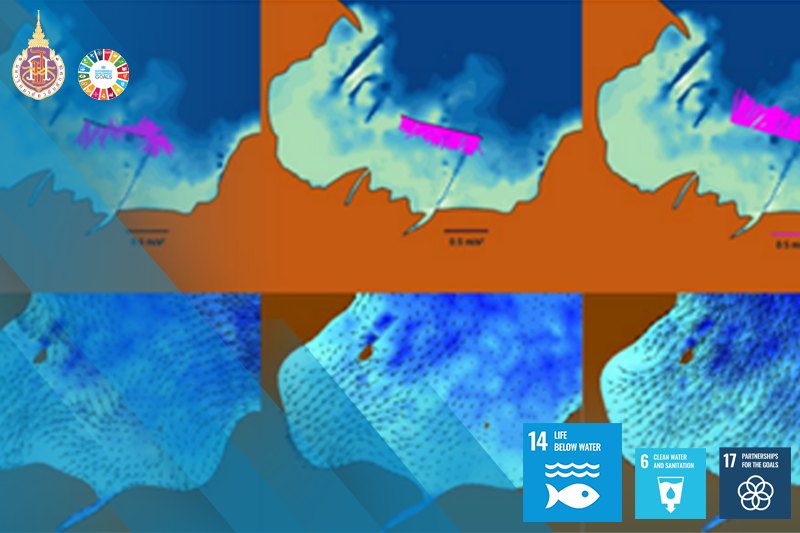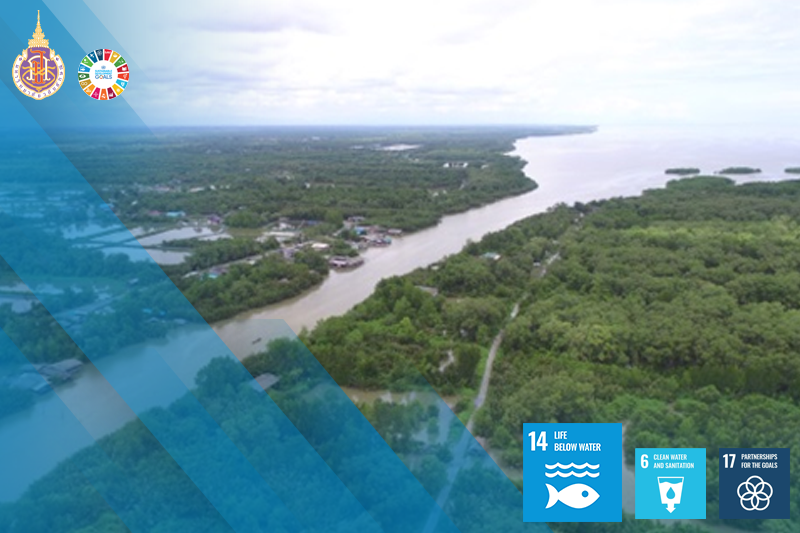Free Access to Walailak University Laboratory for Local Farmers and Food Producers
Walailak University excels in research, learning, and academic services, encompassing various fields such as food, plant, fishery, and animal sciences. These areas of expertise include:
- Food Technology and Innovation Research Center of Excellence
- Research Center of Excellence in Essential Oil Innovation
- Center of Excellence Thai Medical Marijuana
- Agricultural Biology Production and Service Center
- Agritech and Innovation Center (AIC), with the support of the Ministry of Agriculture and Cooperatives
The primary objective is to promote the adoption of modern agricultural technologies, innovation, and apply agricultural wisdom to enhance the value, quality, and standards of agricultural products. These efforts aim to ensure the safety and sustainability of products for support the learning process for local farmers, food producers, interested individuals, and our students, especially ones who have farmer families. Importantly, all laboratories and programs are free of charge for general public.
In 2022, various WU laboratories were introduced as follows:
1. Promotion of Plant Laboratory Utilization
The Agricultural Biology Production and Services Center in collaboration with WU Clinic Technology, Walailak University, led Chauat Farmers Network to study and acquire knowledge in the university’s laboratory. They continuously come to learn from the external laboratory that WU organized for local farmers and food producers. This benefited 88 farmers of Chauat Farmers Network who are interested in growing and utilizing the biopesticide fungi. The educational event emphasizes sustainable farming practices aimed at reducing the usage of chemicals for disease and pest control in plants. Innovative technologies were introduced, such as the application of Trichoderma asperellum (NST-009), highly effective fungi in managing various plant diseases, along with Beauveria bassiana and Metarhizium anisopliae fungi to control insect pests. The event not only transferred the technology for efficient fungal proliferation to control pests but also focused on cost reduction of 832,000 baht and increasing crop value. In addition, they utilized biopesticides in their farms and WU experts accompanied them to supervise the process. These farmers expressed interest in establishing community-level fungus proliferation. Moreover, they sought support from external agencies, including the Provincial Community Development Office of Nakhon Si Thammarat and the Department of Agriculture, to export the crops to Japan. A crucial condition for exporting to Japan is that there will be no chemical contamination in the agricultural produce in the exporting process.
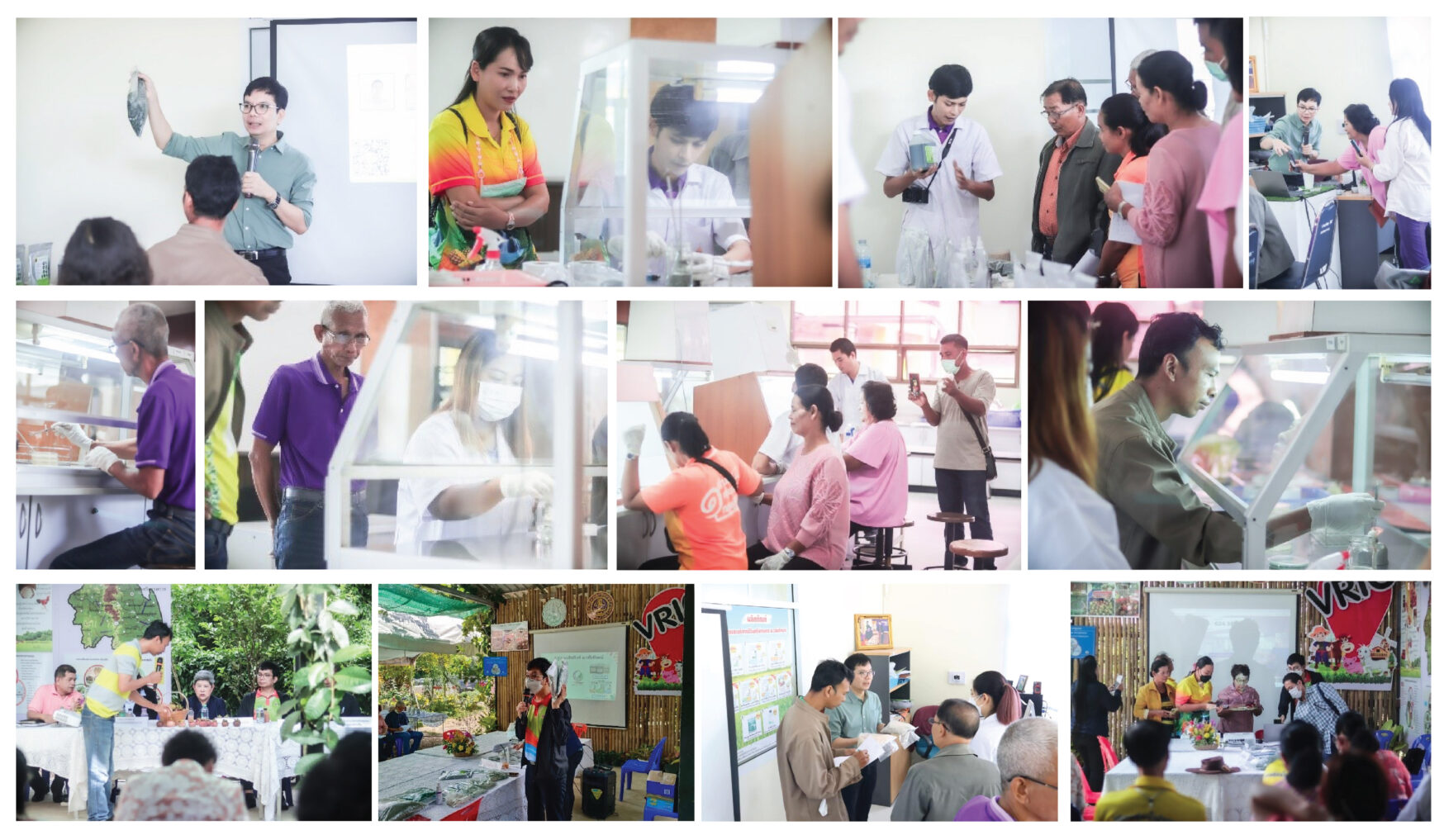
WU have established a shop that sells agricultural products and hygienic food called “the WU Agricultural Innovative Demonstration and Development Center in Honor of Rama IX (Kla Dee).” The university’s learning center for farmers welcomes interested farmers, food producers and general public. There are experts who guide safety and sustainable farming practices in these practical workshops for free. The organic farming methods here are chemical-free, clean, and safe for everyone. At present, they also export their products to foreign countries without the use of chemicals by the export standards. There are various type of production as follows:
- Plant cultivation, such as organic vegetable cultivation, including vegetable planting in insect tents (vegetable planting insect tent)
- Livestock, such as testing livestock with organic feed, such as egg ducks
- Aquaculture, such as Red Nile tilapia farming in floating baskets
- Product processing and distribution, such as salted eggs, and fresh vegetables.
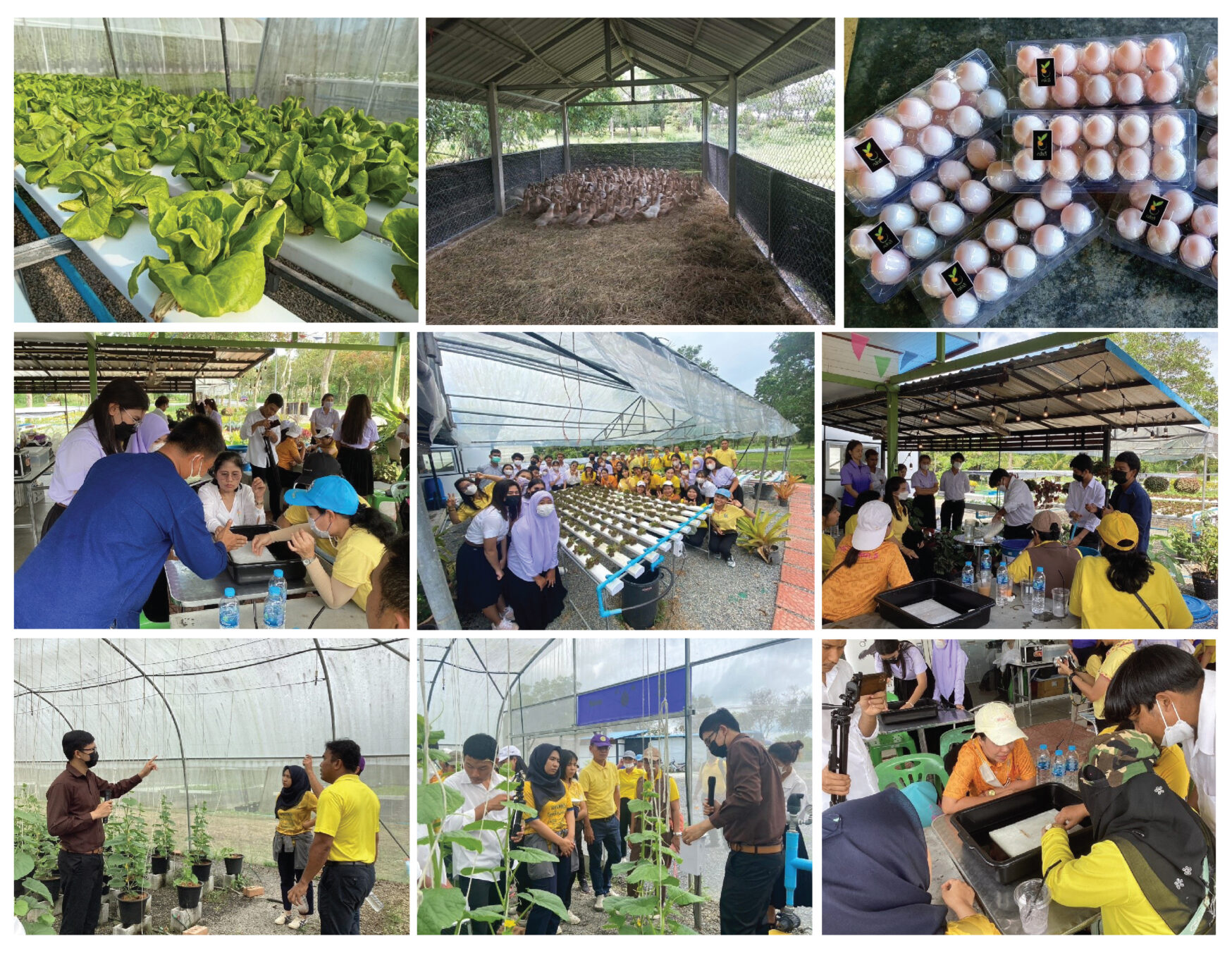
2. Promotion of Animal Feed Laboratory Utilization
Walailak University conducted a workshop titled “Simplified Food Production for Breeder Sows.” This workshop took place at the Animal Feed Laboratory in Building for Science and Technology 3 (B3) at Walailak University. Also, the university built the field laboratory to access more local farmers and interested individuals. The primary objective of the workshop is to develop a specialized feed formula for breeder sows to enhance production efficiency and emphasize the importance of how healthy swine affects consumption. The event was exclusively organized for the community enterprise group involved in swine farming and the Satit Walailak Pattana Community and general public. A total of 15 swine farmers were able to attend this workshop free of charge.
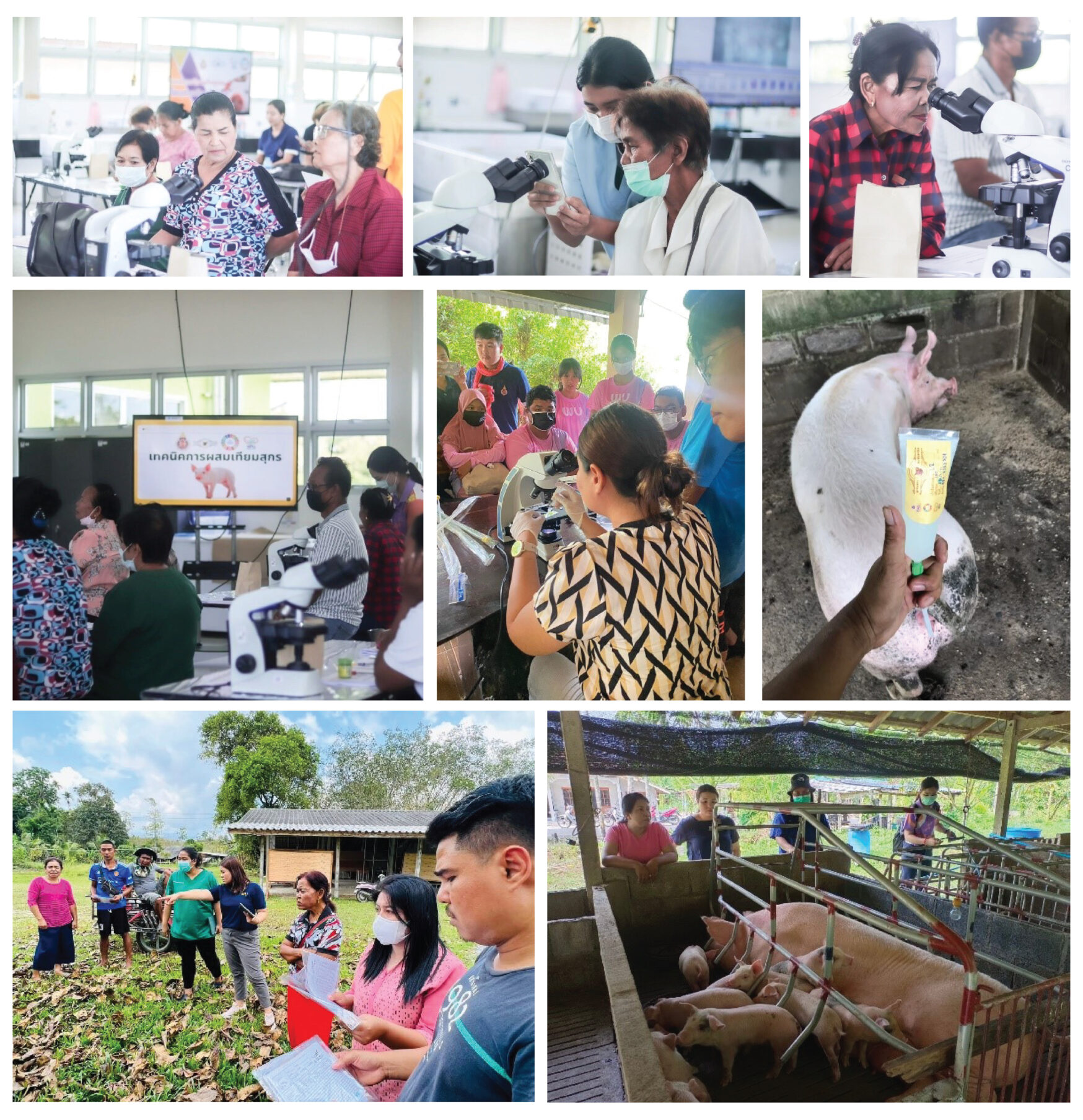
Through the sharing of technological knowledge, participants gained insights into the healthy breeder-sow feed formula. The workshop was organized in the Satit Walailak Pattana Community, five kilometers away from Walailak University, to be the field swine laboratory outside the campus. Additionally, the participants had the opportunity to practice collaborative feed production in the program. This experience deepened their understanding of designing swine-feed technology prototypes using local materials. Such knowledge has the potential to boost their livelihoods and income. It can lead to the development of community-driven initiatives or local products that can be distributed to members, further enhancing the economic prospects of the participants.
3. Enhancing Food and Gastronomy for Food Producer
Walailak University’s School of Management is dedicated to community service projects. The project aimed at sharing knowledge and enhancing the quality of life in the local communities; to providing the “Sanitation & Food Safety Training Course for Local Restaurants” initiated by the School of Management. Gastronomy tourism is recognized as a vital factor for elevating service standards in terms of hygiene, sanitary, and food safety standards. All the 20 participants learned both theoretical and practical lessons on the factors of food sanitary, safety, and contamination. The participants individually involved in testing food and raw materials with possible contaminations, which could be applied for their daily operations after completing this training course. This involves utilizing the wisdom from various departments within the School of Management, including the Department of Marketing, the Department of Logistics Management, and the Department of Tourism, and Professional Chef.
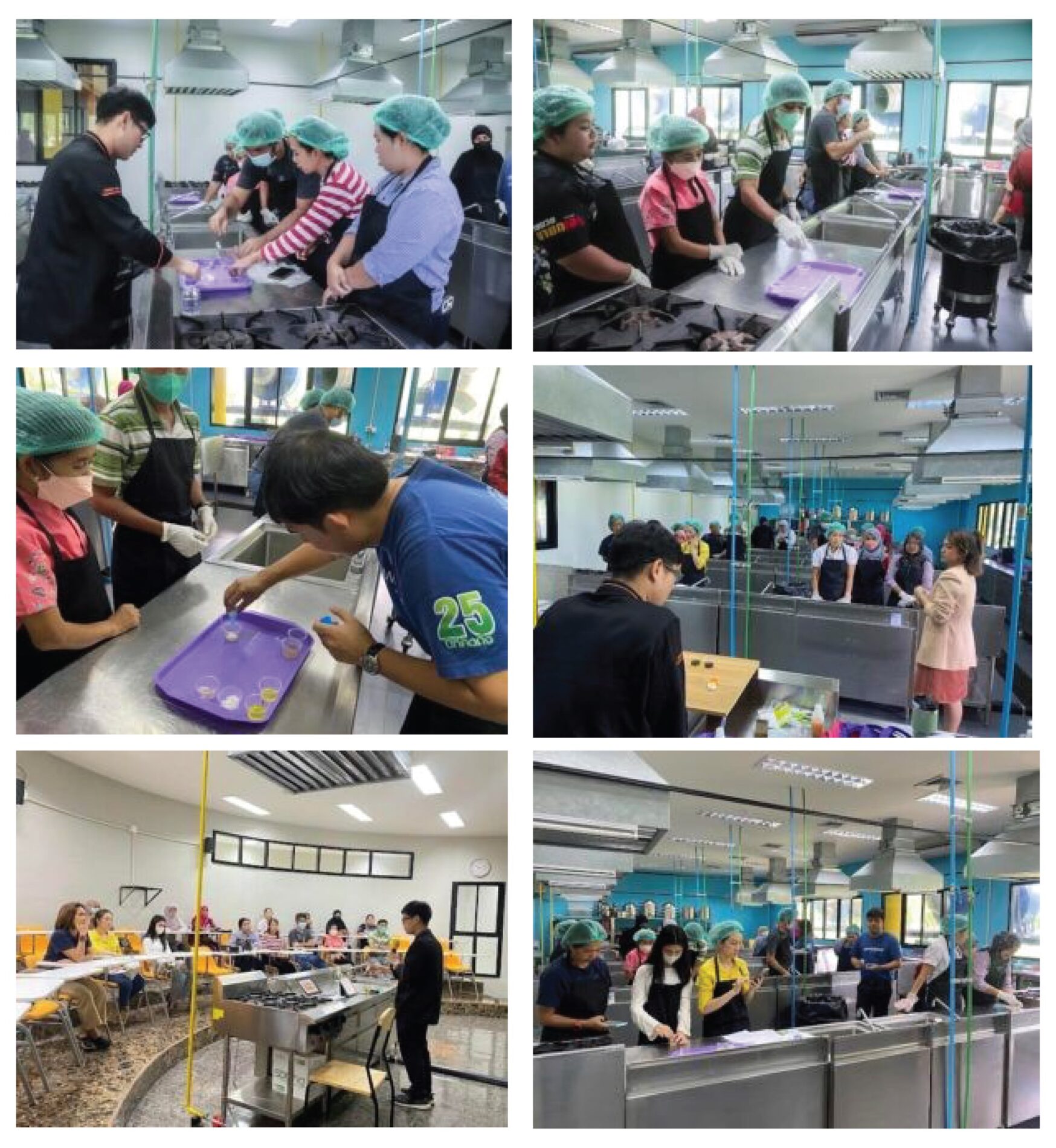
Furthermore, Development of Kimchi Products, Packaging, and Marketing event converted local farmer and citizens into food producers. This event aimed to sustain and reduce expenses and create income for the participants by providing free access to WU facilities and knowledge for making kimchi, the trendy pickled vegetable that was developed in Korea.
